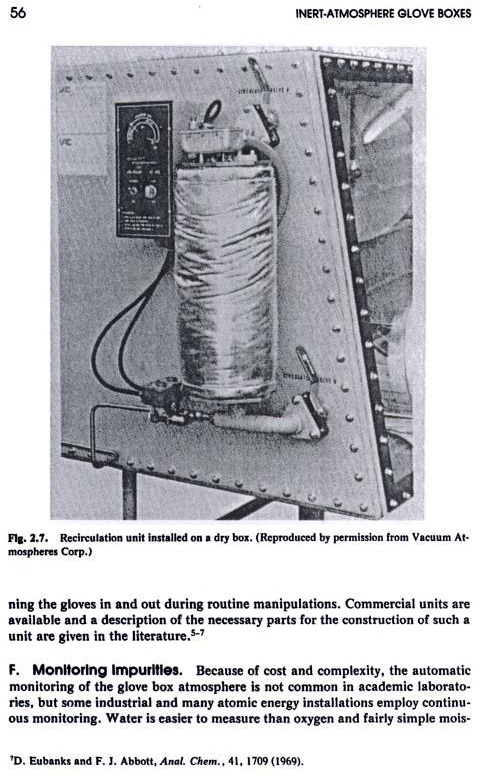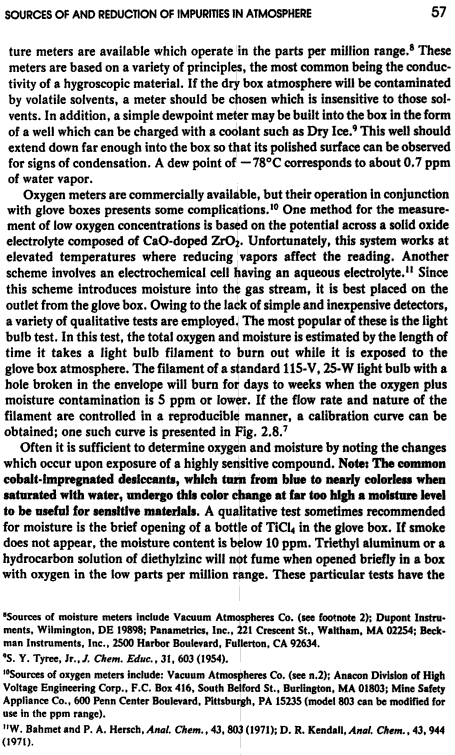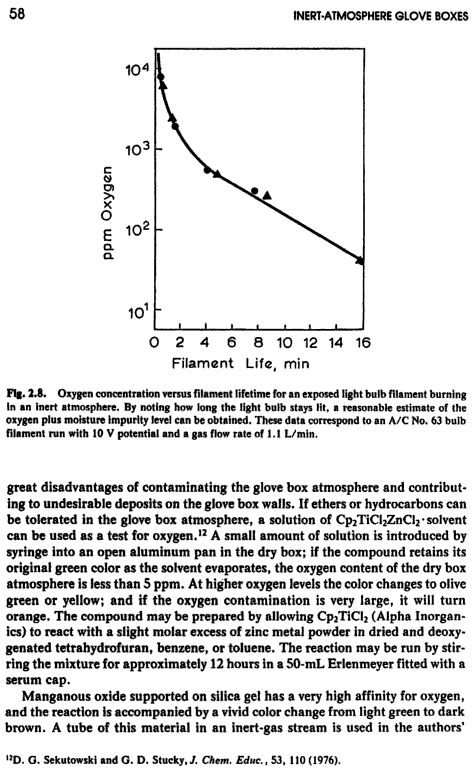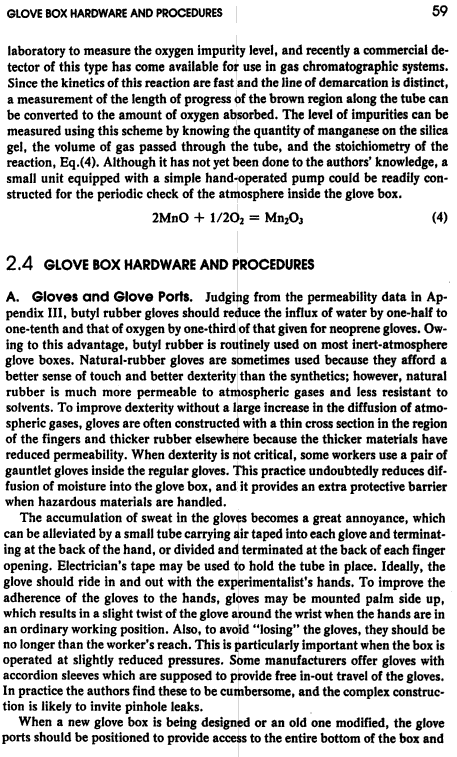xyris
Harmless

Posts: 2
Registered: 18-12-2014
Member Is Offline
Mood: No Mood
|
|
Glove box oxygen and moisture removal
Hello everyone, I need some advice on removing oxygen and moisture from my glove box and this community seem to have many helpful suggestions so I
decided to register this forum,this is my first post.
I work in a lab for a university and we have this stand alone glove box:
http://www.labconco.com/product/precise-basic-glove-boxes-2/...
The problem that I have is that I don't have a way to monitor the oxygen and moisture, and the materials being used in it is very sensitive to both. I
thought about buying sensors for the system but the space is limited inside the glove box and I don't fully understand how the sensors work. Do I need
a pump to feed the gas to the sensor for it to work?
I thought of controlling the moisture content with silica gel or other desiccant but that process takes too long and I might suspect that the in house
nitrogen feed have some moisture in it. I can use a desiccant column to test the house feed before it goes into the glove box. For the oxygen content
I think it should be easy enough to just purge the system with nitrogen. But regardless I would like to know the oxygen and moisture content of the
glove box.
Is there a way to monitor the oxygen and moisture content and remove it within the budget of $1000?
|
|
|
WGTR
National Hazard
   
Posts: 971
Registered: 29-9-2013
Location: Online
Member Is Offline
Mood: Outline
|
|
http://www.sciencemadness.org/talk/viewthread.php?tid=14250
Aside from the thread linked above, using a heated copper catalyst bed is the standard way of removing oxygen from a glove box. The catalyst can be
regenerated by reducing with hydrogen or alcohol vapor if one is clever.
3A Molecular sieves are good for drying air, although it may take a day or so to get below 1ppm.
For commercial solutions:
http://mbraun.de/products/gas-purification/g-series/mb-10g/
Also:
http://en.wikipedia.org/wiki/Air-free_technique
|
|
|
xyris
Harmless

Posts: 2
Registered: 18-12-2014
Member Is Offline
Mood: No Mood
|
|
Those are really good ideas for removing oxygen and water in the glove box and I know that both copper catalyst and sieves are relatively efficient.
Are there any sensors or analyzers you would recommend?
|
|
|
DJF90
International Hazard
    
Posts: 2266
Registered: 15-12-2007
Location: At the bench
Member Is Offline
Mood: No Mood
|
|
I would like to point you in the direction of an excellent book called "Manipulation of air sensitive compounds" by Shriver and Drezdon.
|
|
|
markx
National Hazard
   
Posts: 646
Registered: 7-8-2003
Location: Northern kingdom
Member Is Offline
Mood: Very Jolly
|
|
Purging the chamber with argon gas of sufficent purity was the standard procedure in my past employment that involved the use and manipulation of
highly absorbant microporous carbon. The stuff even absorbed nitrogen from air and would not let it go without heating to 400C.
Exact science is a figment of imagination.......
|
|
|
WGTR
National Hazard
   
Posts: 971
Registered: 29-9-2013
Location: Online
Member Is Offline
Mood: Outline
|
|
   
Shriver, D. F. and M. A. Drezdzon. The Manipulation of Air-Sensitive Compounds. 2. Canada: John Wiley & Sons, 1986. Print. https://books.google.com/books?id=tiKm1HnWix4C&pg=PA57&a...
|
|
|
Texium
|
Thread Moved
22-11-2023 at 19:01 |